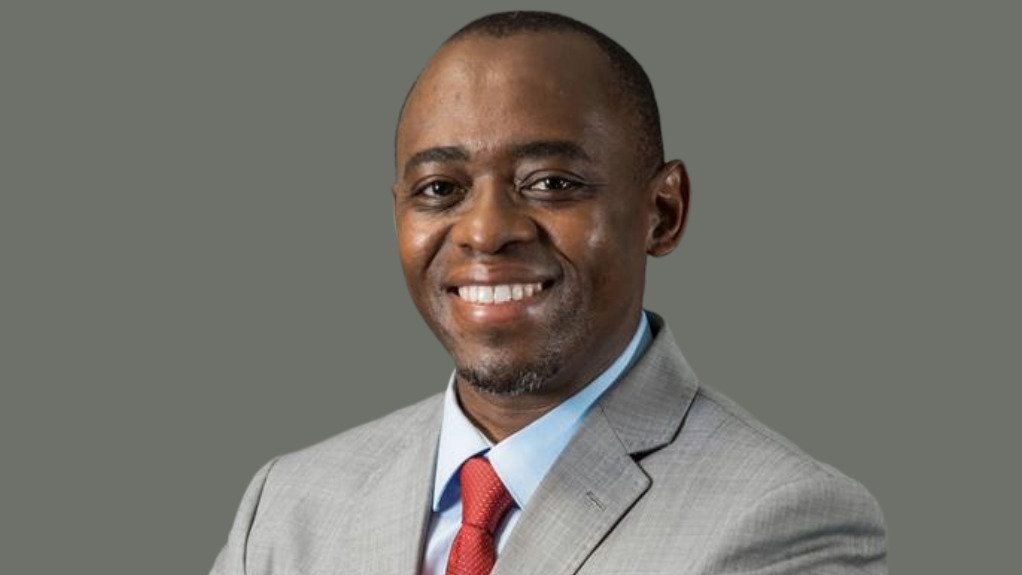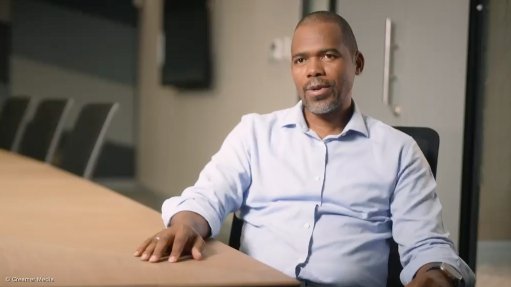The CSIR celebrates 80 years of supporting South Africa’s industry and public sector
This year marks the eightieth anniversary of the founding of South Africa’s internationally-renowned Council for Scientific and Industrial Research (CSIR). Arguably the country’s premier science council in the areas of applied science and engineering, the CSIR has been looking both back at its past triumphs, and forward to its next challenges, as it celebrates this landmark year.
“We look back with pride, and forward with confidence,” CSIR CEO Dr Thulani Dlamini tells Engineering News in an exclusive interview. “We are sure that we’ll make a big contribution to the country’s future.”
The CSIR was founded in 1945, in the aftermath of the Second World War. That conflict had seen a great expansion in South African industry, in support of the Allied war effort. The then South African government realised that the country needed an organised research and development (R&D) capability to support the country’s industrial development. And so, the CSIR was created, through legislation. The importance of the CSIR is highlighted by the fact that the first chairperson of the CSIR was the then head of the government, Prime Minister Jan Smuts.
“The legislation that created the CSIR in 1945 gave it a very clear mandate – to undertake directed research,” highlighted Dlamini. “And we need to stress the word ‘directed’. Later, it was also realised that the CSIR could also support government.”
Because Smuts was board chairperson, the CSIR originally reported directly to Cabinet. Subsequently, and for a long time, it reported to what is now the Department of Trade, Industry and Competition, before being moved to its current reporting position, under what is now the Department of Science, Technology and Innovation. At the start, the CSIR was 100% funded by the State. Today, it gets 80% of its income from contract research and only 20% from its State (Parliamentary) grant. Originally a State department, it is now classified as a State-owned business enterprise.
“This means that we are not bound by the State salary scales for public servants,” pointed out Dlamini. “This means that we can be a competitive employer and attract the skills that we need.”
The CSIR is probably the country’s second oldest science council, after what is now the Council for Geosciences. “Originally, the CSIR had a very broad mandate, but various CSIR units were later spun-out to become science councils in their own right,” he noted. These include the Human Sciences Research Council, the National Metrology Institute, and the South African National Space Agency.
On the other hand, the number of disciplines covered by the ‘slimmed down’ CSIR has actually increased. “Today, the CSIR covers a much wider range of disciplines, of relevance to South Africa,” he observes.
Over the decades, the science council has had a huge impact. Its National Institute for Telecommunications Research laid the foundation for the South African electronics industry. During the Covid-19 pandemic, the CSIR developed and operated the Covid-19 vaccination certification system and manufactured 18 000 ventilators. It designed and developed the layout and security features for the country’s smart ID cards.
CSIR technologies that have been exported include an automated payments system and the technologies needed to manufacture lithium-ion batteries. “We developed the first camera in the world that could be used to inspect electricity transmission lines during day time. The company the CSIR created to exploit this technology now holds 50% of the world market.” This is just one of the companies that, over the years, the CSIR has spun-out, to commercially exploit the technologies that it developed.
Naturally, the organisation has had to adapt itself over the decades. The most recent major adaptation was decided upon seven years ago.
“That was when we made the strategic decision to focus on R&D that would benefit South African industry,” reports Dlamini. “We’re happy with the result. We have localised 100 technologies, we have signed 55 licensing agreements for CSIR-developed technologies and signed more than 200 technology development agreements. We’ve also supported more than 770 small and medium enterprises. This is in addition to the work we continue to do, towards the development of national standards and the development of a capable State.”
“Looking to the future, AI and Big Data are major areas now,” he points out. “For one example, we’re using such technologies to help farmers, through processing satellite data, to inform them about the condition of their soils, such as where the soil is suffering from nutrient deficiency. We are rolling this out now. Previously, to ascertain if any of their soils were lacking nutrients, they had to take samples to a laboratory and await the results. This system, using CSIR-developed algorithms, is much easier and much faster, and allows them to apply fertiliser only where it is needed, and not everywhere, thereby increasing efficiency and reducing their costs.”
To commercialise the technologies that the CSIR is now developing, the organisation has created a dedicated unit, called CSIR C3. “We see this as critical, to convert CSIR research into impact,” concludes Dlamini.
Article Enquiry
Email Article
Save Article
Feedback
To advertise email advertising@creamermedia.co.za or click here
Announcements
What's On
Subscribe to improve your user experience...
Option 1 (equivalent of R125 a month):
Receive a weekly copy of Creamer Media's Engineering News & Mining Weekly magazine
(print copy for those in South Africa and e-magazine for those outside of South Africa)
Receive daily email newsletters
Access to full search results
Access archive of magazine back copies
Access to Projects in Progress
Access to ONE Research Report of your choice in PDF format
Option 2 (equivalent of R375 a month):
All benefits from Option 1
PLUS
Access to Creamer Media's Research Channel Africa for ALL Research Reports, in PDF format, on various industrial and mining sectors
including Electricity; Water; Energy Transition; Hydrogen; Roads, Rail and Ports; Coal; Gold; Platinum; Battery Metals; etc.
Already a subscriber?
Forgotten your password?
Receive weekly copy of Creamer Media's Engineering News & Mining Weekly magazine (print copy for those in South Africa and e-magazine for those outside of South Africa)
➕
Recieve daily email newsletters
➕
Access to full search results
➕
Access archive of magazine back copies
➕
Access to Projects in Progress
➕
Access to ONE Research Report of your choice in PDF format
RESEARCH CHANNEL AFRICA
R4500 (equivalent of R375 a month)
SUBSCRIBEAll benefits from Option 1
➕
Access to Creamer Media's Research Channel Africa for ALL Research Reports on various industrial and mining sectors, in PDF format, including on:
Electricity
➕
Water
➕
Energy Transition
➕
Hydrogen
➕
Roads, Rail and Ports
➕
Coal
➕
Gold
➕
Platinum
➕
Battery Metals
➕
etc.
Receive all benefits from Option 1 or Option 2 delivered to numerous people at your company
➕
Multiple User names and Passwords for simultaneous log-ins
➕
Intranet integration access to all in your organisation




















